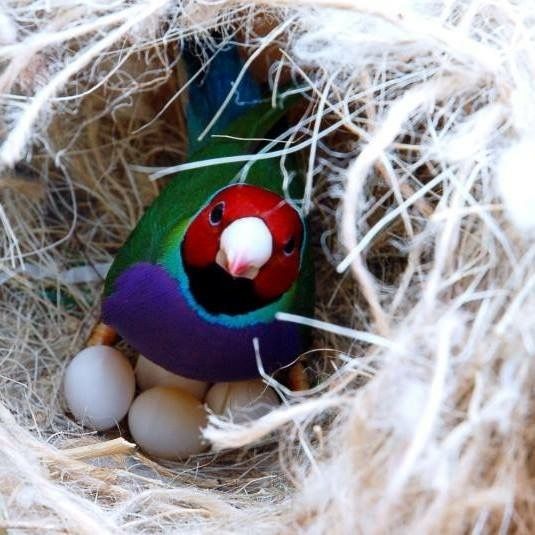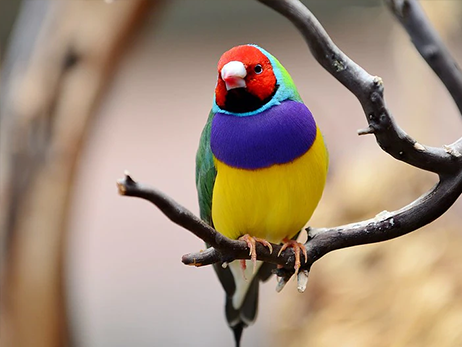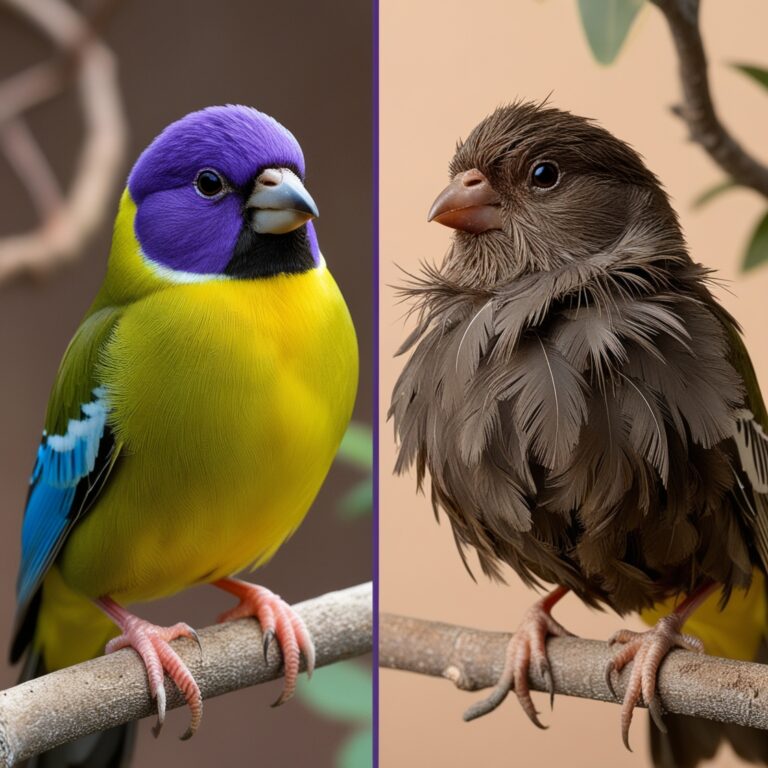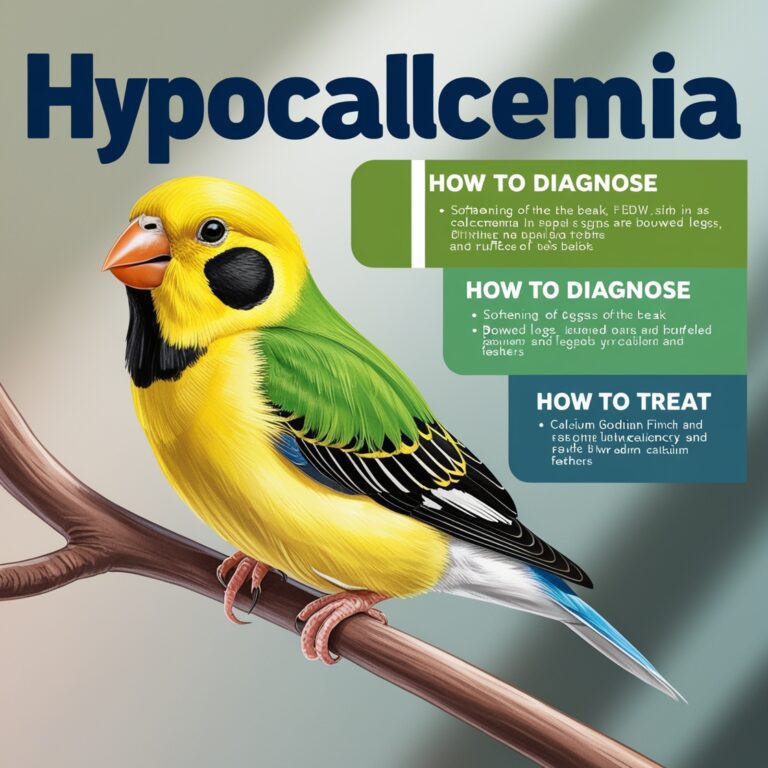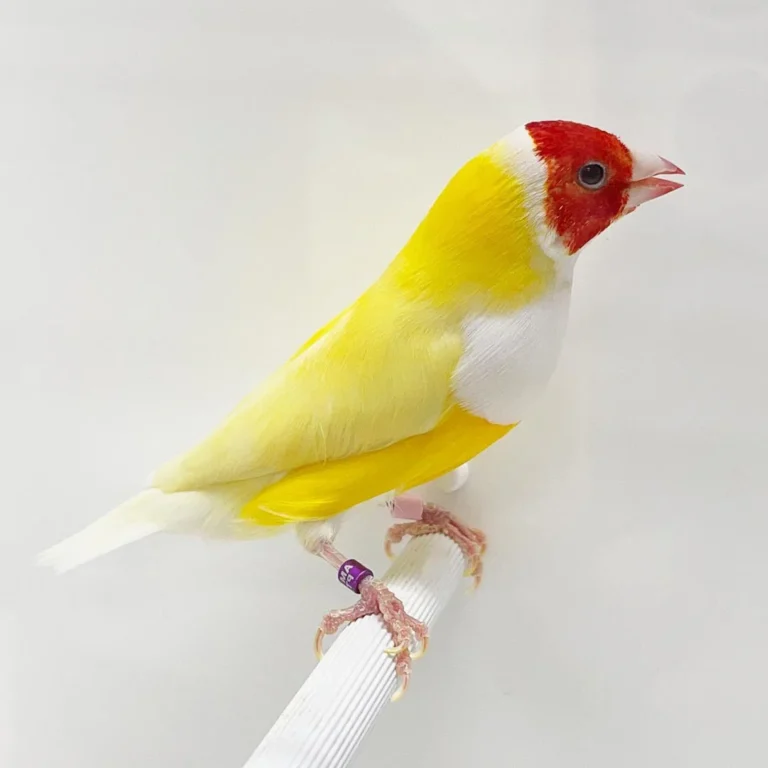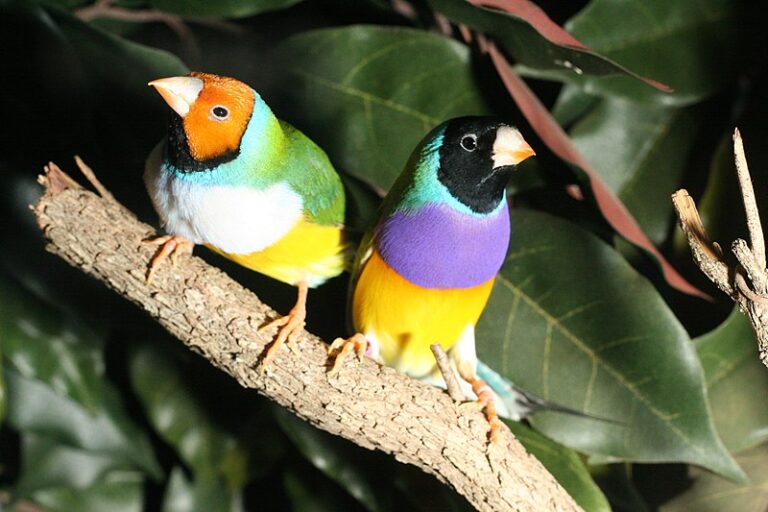Calcium the Essential Mineral for Optimal Gouldian Finch Health and Egg Production
Introduction
Calcium is one of those nutrients that everyone knows is important, but until recently, I didn’t realize just how vital it is for the health of my Gouldian finch. Like many finches owners, I thought that providing cuttlefish bone, oyster shell, and crushed eggshells was enough to meet my birds’ calcium needs. However, after dealing with frequent cases of egg binding, soft-shelled eggs, and even sudden deaths among breeding females, I realized there was much more to the story. This article shares my journey to understanding the critical role of calcium in avian health and offers insights that could help you prevent similar issues in your own flock.
Understanding Calcium’s Role in Gouldian FinchHealth
Calcium plays a fundamental role in a Gouldian finch body, acting as a catalyst for numerous biochemical processes. From bone formation to nerve function, calcium is essential for maintaining overall health. However, for something so crucial, calcium is surprisingly difficult for finches to absorb efficiently. This challenge is due to the fact that calcium absorption is heavily dependent on the presence of vitamin D in the intestine. Without adequate vitamin D, even the best calcium supplement will go to waste.
Common Calcium Deficiencies in Gouldian Finch
When birds do not get enough calcium, it manifests in a number of alarming ways, particularly in breeding females. The most common issues include egg binding, where an egg gets stuck in the bird’s reproductive tract, and the production of eggs with soft or thin shells. In more severe cases, Gouldian finches can suffer from “dead-in-shell,” where the embryo fails to hatch due to inadequate calcium during the formation of the egg. These problems are not only heartbreaking for the owner but also potentially life-threatening for the Finch.
Calcium Sources for Gouldian Finch
Traditionally, finches owners have relied on natural sources of calcium like cuttlefish bone, oyster shell, and crushed eggshells. These are easy to obtain and seem like a straightforward solution. However, I discovered that these solid forms of calcium are often not absorbed effectively. Studies have shown that less than 10% of calcium from these sources actually enters the bloodstream, where it can be used by the Gouldian Finch’s body. This was a shocking revelation for me, as I had always assumed my birds were getting plenty of calcium.
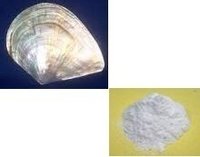
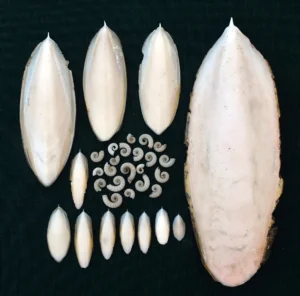
The Role of Vitamin D in Calcium Absorption
Vitamin D is the key to unlocking calcium’s potential in a bird’s body. It is required to convert calcium into a form that can be absorbed through the intestinal wall into the bloodstream. Unfortunately, vitamin D is not commonly found in foods, meaning that birds need to get it from other sources. The most natural source of vitamin D is sunlight, as exposure to ultraviolet (UV) light triggers the synthesis of vitamin D in the skin. This is why outdoor birds often fare better in terms of calcium absorption than indoor birds.
Modern Challenges in Gouldian Finches Nutrition
Today’s food sources are not as nutrient-rich as they once were. Over time, soils have become depleted of essential minerals due to over-farming and the use of synthetic fertilizers, which prioritize rapid growth over nutritional content. As a result, even the best bird food may be lacking in essential nutrients, including calcium. This is a modern challenge that requires modern solutions, especially for birds that are kept indoors or have limited access to natural sunlight.
Introducing Liquid Calcium Supplements
After much research, I came across a product called Calcium Plus Liquid, which is a liquid form of ionized calcium. This supplement is designed to be absorbed much more effectively than solid forms of calcium. The results were immediate and impressive. Since I started using Calcium Plus Liquid, I no longer see issues like egg binding or soft-shelled eggs. My birds are healthier, and my breeding success has improved dramatically.
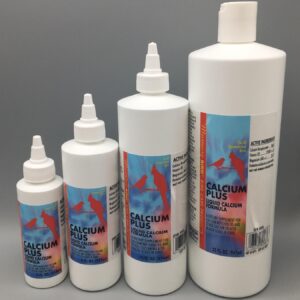
How to Use Liquid Calcium Supplements Effectively
Using liquid calcium supplements is not just about adding it to your bird’s diet; it’s about doing so correctly. For non-breeding birds, a dose once a week is sufficient, while breeding birds may need it up to three times a week. However, it’s important not to over-supplement. Calcium needs to be balanced in the diet to avoid disrupting the bird’s natural ability to regulate blood calcium levels. An on-off regimen, where you give calcium supplements for a period and then stop, allows the bird’s body to manage and utilize the calcium more efficiently.
The Impact of Proper Calcium Supplementation on Finch Health
With proper calcium supplementation, the benefits are clear. Birds produce larger clutches of eggs with thicker shells, and the overall hatchability rate improves. Additionally, the birds themselves are healthier and more vibrant, showing fewer signs of stress and fatigue. The improvement in egg quality alone is worth the investment in a good liquid calcium supplement.
Debunking Myths About Calcium Supplementation
One of the biggest myths I encountered was the idea that calcium should be mixed into a bird’s daily vitamin and mineral supplement. This is not only unnecessary but can also be counterproductive. Calcium needs to be given separately and not on a daily basis to allow the bird’s body to manage its levels properly. Another misconception is that natural sources like cuttlefish bone are sufficient on their own. While they do provide some calcium, they are not enough to meet the needs of most birds, especially during breeding.
Personal Experience and Results
Since switching to a liquid calcium supplement, my experience has been overwhelmingly positive. My birds are healthier, and the breeding females are producing stronger eggs with better hatch rates. I’ve also received feedback from other bird owners who have tried Calcium Plus Liquid, and they’ve had similar success. The peace of mind that comes from knowing my birds are getting the calcium they need is invaluable.
Potential Risks of Inadequate Calcium Supplementation
Failing to provide adequate calcium can lead to serious long-term health issues for your birds. Chronic calcium deficiency can result in weakened bones, poor muscle function, and ongoing reproductive issues. It’s crucial to recognize the signs of calcium deficiency, such as lethargy, poor egg quality, and difficulty in laying eggs, and address them promptly with the right supplements.
Conclusion
Calcium is far more important than many Gouldian Finch owners realize. It’s not just about giving your birds a cuttlefish bone and calling it a day; it’s about understanding how calcium works in their bodies and ensuring they get enough of it in a form they can actually use. With the right approach to calcium supplementation, you can greatly improve the health and well-being of your finches, ensuring they live long, happy lives.
Frequently Asked Questions (FAQs)
1. How Often Should I Supplement Calcium for My Gouldian finch?
For non-breeding finches, once a week is sufficient. Breeding birds may require supplementation two to three times a week.
2. Can I Rely Solely on Natural Calcium Sources?
Natural sources like cuttlefish bone and eggshells provide some calcium, but they are often not absorbed as effectively as liquid supplements.
3. What Are the Signs My Bird Might Be Calcium Deficient?
Common signs include soft-shelled eggs, difficulty laying eggs, lethargy, and poor muscle control.
